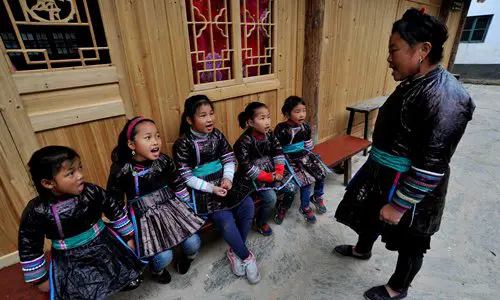Wunai Yinjiao has been making sure her fellow villagers don't have more children than they want for nearly 20 years.
She's not a gynecologist, nor a government official enforcing the country's family planning policy. She's an herbalist in Zhanli, a Dong ethnic minority village in Southwest China's Guizhou Province.
The village lies 20 kilometers into a deep mountain range. It's quite cut off from the outside world and has its own unique culture. The village's most special tradition is about controlling their babies' sex. In the rest of China, the government controls the population, but Zhanli has kept its own custom, without involving the authorities.
Wunai Yinjiao has been the sole herbalist for the village since 1999. Before couples try to have a second child, they come to her. She takes water out of one of two wells - a "boy well" and a "girl well" - and brews a soup with a local herb with it. By drinking the mixture, the couple can allegedly "decide" the sex of their next baby.
The reason couples want to "decide" their second child's sex is because most people have only two children and want a boy and a girl. They seem to have done an astonishingly good job of keeping their population stable throughout history.
The elderly in the village say as early as the Qing Dynasty (1644-1911), the leaders of the village realized the available arable land could not support a rapidly growing population, and made rules to control the population.
The rules dictated a couple with land of a certain size can have two children, but a couple with less land can only have one. Rule breakers will be cast out of the village. That way, the population is controlled.
It's a surprising phenomenon nowadays, because most families in Zhanli have two children, with over 98 percent having one girl and one boy. In the past 58 years, the population of the village only increased from 737 to 786.
There is not yet a scientific explanation for the highly equal boy-girl ratio in the village. Locals say it's the mystic herb's effect. Demographers call it "the Zhanli phenomenon."
(GLOBAL TIMES)
 简体中文
简体中文

